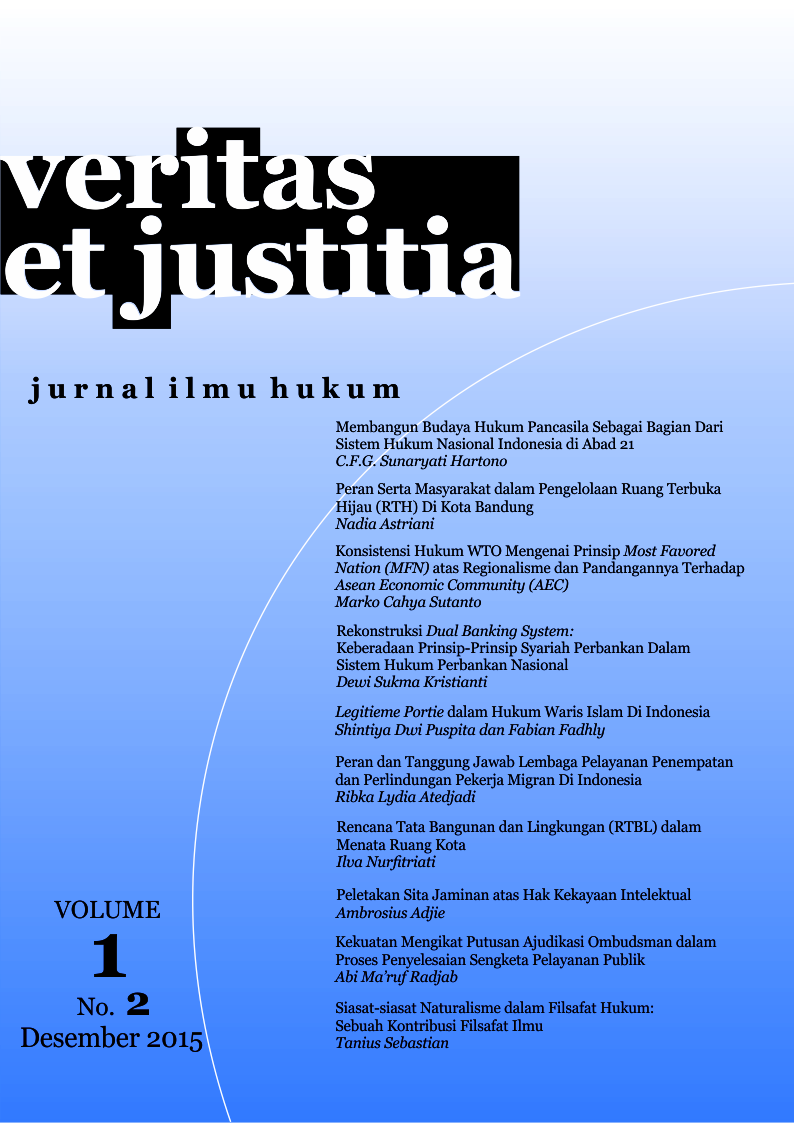PERAN DAN TANGGUNG JAWAB LEMBAGA PELAYANAN PENEMPATAN DAN PERLINDUNGAN PEKERJA MIGRAN DI INDONESIA
DOI:
https://doi.org/10.25123/vej.v1i2.1693Abstract
Migrant workers are the universal right holders whose rights, dignity and security require special and specific kinds of protection. The international migrant workers happen to find themselves outside of their nationality law protection system, hence their status is absolutely crucial, as they are susceptible to exploitation and harassment. This protection has been provided since the activities of the labor system in the market are related to pre-placement, placement, and post-placement. The actual implementation of this form of protection currently falls under an institution in charge of services and protection. This institution is known in Indonesia as Badan Nasional Penempatan dan Perlindungan Tenaga Kerja Indonesia, the National Institution for the Placement and Protection of Indonesian Laborers (BNPPTKI). The vulnerability of Indonesian migrant laborers can be discerned from a number of issues such as execution of the death penalty in the country of destination without any notification being given to the government of their country of origin, and acts of violence committed against Indonesian migrant workers in their workplace that is quite susceptible to 3D. By way of its various institutions, Indonesia must address the issues of migrant workers seriously and regard this matter as being subject to law in specific situations. The safe and proper migration situation of Indonesian International workers should become a role model and fall under the responsibilities of the placement institutions services and protections in order to minimize the legal issues faced by the Indonesian workers.Downloads
Published
Issue
Section
License
Authors who publish with this journal agree to the following terms:
Authors retain copyright and grant the journal right of first publication with the work simultaneously licensed under a Creative Commons Attribution License that allows others to share the work with an acknowledgement of the work's authorship and initial publication in this journal.
Authors are able to enter into separate, additional contractual arrangements for the non-exclusive distribution of the journal's published version of the work (e.g., post it to an institutional repository or publish it in a book), with an acknowledgement of its initial publication in this journal.
Authors are permitted and encouraged to post their work online (e.g., in institutional repositories or on their website) prior to and during the submission process, as it can lead to productive exchanges, as well as earlier and greater citation of published work.
The Journal allow the author(s) to hold the copyright and to retian publishing rights without restrictions.






